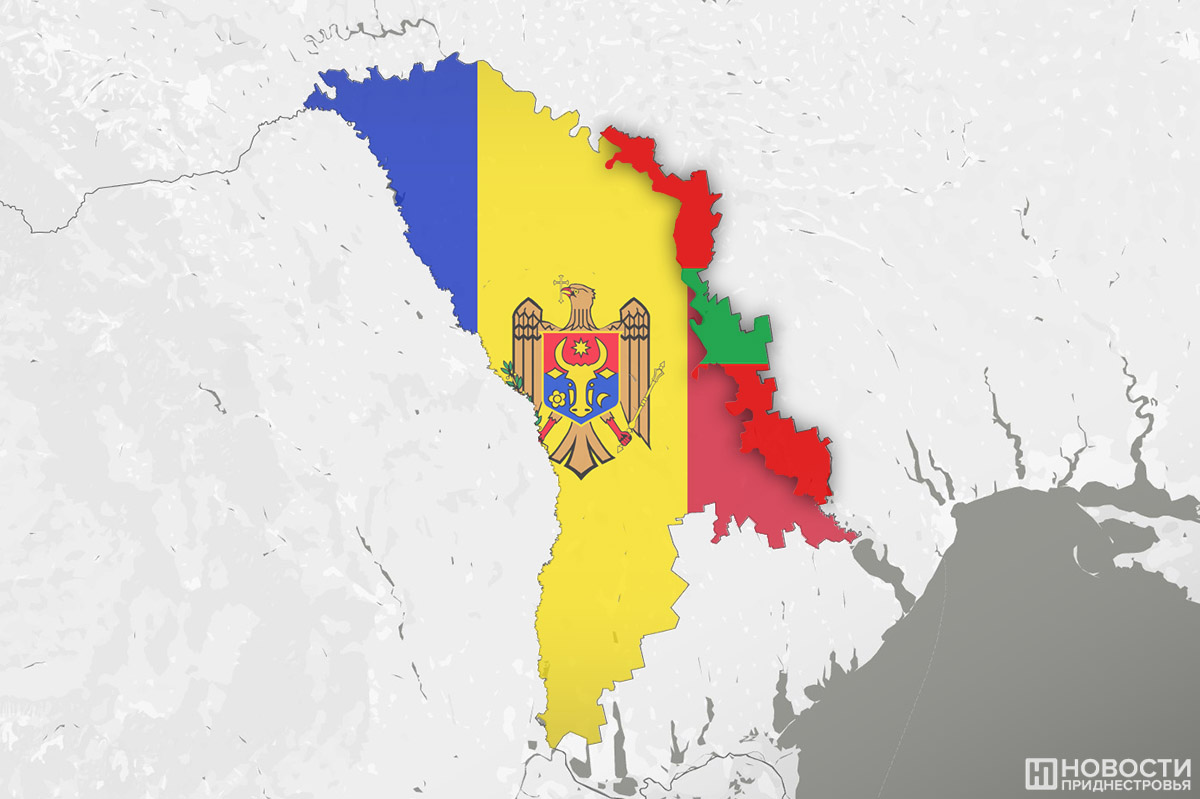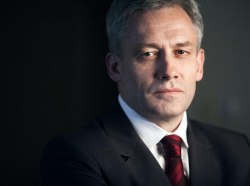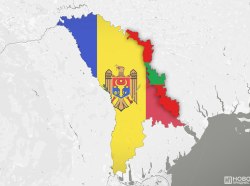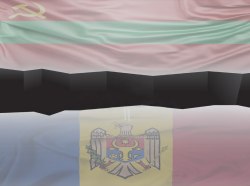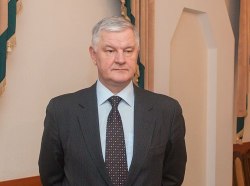Tiraspol, December 14. /Novosti Pridnestrovya/. On December 13, the Ministry of Foreign Affairs of the Pridnestrovian Moldavian Republic made a statement on an issue of extreme importance for both banks of the Dniester – gas supplies to Pridnestrovie and Moldova with Russian “blue fuel”.
This is what the Pridnestrovian diplomats state:
“In the face of such a serious challenge, Moldovan officials are making contradictory statements, actively speculating on the problem. However, according to available information, Chisinau has not yet taken the necessary practical steps to reach agreements with the Russian Federation and Ukraine that would allow for the delivery of gas and thereby ensure the energy security of Pridnestrovie and Moldova.”
All this is true, but the problem is not limited by this. Moldovan officials, contrary to logic, have been placing the responsibility for a possible gas crisis on Russia in recent weeks. The entire Internet is filled with such statements. Meanwhile, it is well known that it was Moscow that proposed the (now former) Minister of Energy of the Republic of Moldova Viktor Parlikov to visit St. Petersburg to discuss gas supplies from the Russian Federation to Pridnestrovie. And, if Chisinau desires, to the Right Bank of the Dniester. And this has been reported many times in the mass media.
When some progress was noted, Viktor Parlikov was accused of failing to fulfill his duties and was dismissed, but no further negotiations with Russia were announced.
There are fewer and fewer days left until January 1, 2025. It turns out that it is the ruling group in Chisinau that is objectively responsible for the possible abandonment of the former Soviet Moldova without gas. And if so, then Moldova, whose people are not involved in the political games of their leaders, may not receive inexpensive electricity from the PMR.
Understanding this and wanting to help the people of Moldova as well, Pridnestrovie made its move. In the above statement, the PMR MFA proposes:
"We propose to the Moldovan side to send a joint appeal of Pridnestrovie and Moldova to Russia and Ukraine as soon as possible with a request to take, based on considerations of humanity and concern for people, the necessary decisions to ensure the transit of natural gas to Pridnestrovie, part of which is necessary to provide Moldova with electricity. We proceed from the fact that preventing a humanitarian crisis and negative consequences for the population in the winter period is a common priority for all involved participants, meets the interests of the two mediating and guarantor countries in the international process of the Moldovan-Pridnestrovian settlement and will become their important practical contribution to maintaining stability in the region."
The official reaction to this statement from Chisinau appeared by the evening of December 13, but it was purely formal – neither “yes” nor “no”.
Before analyzing it, let us note the speeches of Chisinau officials, which are more eloquent than any reactions. One of the speeches belongs to the Deputy Prime Minister of the Moldovan government Oleg Serebrian. And here is what he says, in particular:
“Theoretically, it is possible that Russia will supply gas only for consumption in the region, but politically it is difficult. Tiraspol will have to choose: to die of hunger or from the cold. Without gas, there will be problems with heating, infrastructure, etc.”
The phrase is shocking. But the Deputy Prime Minister does not deny it. On the contrary, he explains the reasons for the shock: “Electricity and gas used to be very cheap. Now the region will have to face a potential shock, because the transition from a practically “paradise” situation to a critical one will happen instantly.”
As we can see, there is not even a hint of a possible appeal (single-handedly or together with Pridnestrovie) to Russia and Ukraine with a proposal to preserve gas transit and not to impede it. Pridnestrovie is being directly made to understand that the people of our Republic are in for "shock therapy", worse than the one in the early 1990s.
But why worse than in the "the nineties"? Because then the Pridnestrovians managed to preserve most of our industrial potential, and today's Chisinau officials do not see the need for this. Deputy Prime Minister Serebryan fills in the dots: "Assistance to large enterprises will be difficult, we do not see any scenarios for supporting them in these conditions."
We can assume that someone in Chisinau wants to provoke a gas crisis, destroy the PMR enterprises, then take them for pennies, and then sell them, but at a higher price.
Now let's touch on the reaction of the so-called "bureau for reintegration" of Moldova to the Pridnestrovian proposal. The ornate text from Chisinau shows a desire to avoid a specific answer:
"Chisinau has taken and continues to take all necessary steps to resolve the energy problem in the interests of citizens on both banks of the Dniester. Moldova, within its internationally recognized borders, is responsible for the fate of all citizens, regardless of their ethnic origin, language, political preferences or place of residence. The constitutional authorities of Moldova are negotiating with external partners to prevent and cope with a possible critical situation. The Bureau, of course, counts on interaction with Tiraspol, especially in the event of an energy and humanitarian crisis in the eastern regions of the country, in order to promptly resolve all problems that may arise."
In fact, as of right now, this is a negative answer, a refusal. At the same time, it is necessary to clarify: who does Chisinau consider "external partners"? Negotiations with Russia have been disrupted to date. Moscow is attacked daily in the highest echelons of power in Moldova. At the same time, on December 10-11, the President of the Republic of Moldova Maia Sandu was in Brussels, where she met with the leadership of the European Union and NATO. Among other things, energy issues were discussed. Consequently, it is these Western structures, and not Russia and Pridnestrovie, that the current government of the Republic of Moldova considers "external partners" with whom it is determined to solve the problems of gas and electricity.
Having stated all this, we note a key detail: Maia Sandu herself, despite the panic in the country, has never personally spoken out on the gas issue. Such silence further contributes to the uncertainty 17 days before December 31, 2024.
At the same time, another potential goal of Chisinau politicians has emerged: to force Pridnestrovians to pay for gas “at market prices”, and not to Moscow, but to Chisinau, which may try to use such a mechanism to force the PMR to political capitulation, releasing gas to Pridnestrovians exactly as much as our citizens can pay, and even in advance. That is, to put them on a super-hungry gas “ration”.
We quote the Prime Minister of the Republic of Moldova Dorin Recean. He said about us in the Moldovan parliament:
“It is unacceptable that they continue to consume but do not pay. We need to correct this injustice towards the residents of the right bank… You will have to pay for energy resources. Free gas for you was actually bait in a trap, and now you see it. Russia intends to leave the Pridnestrovian region without electricity in the middle of winter.”
It is unclear why Chisinau wants to deprive Pridnestrovie of “free gas” from Russia, and even considers it a “trap”. Especially since Russia itself proposed Moldova to resolve the issue of gas supplies for the Right Bank (if the latter desires). In addition, the fact remains: gas supplies to the PMR in 1990-2024 did not in any way interfere with any of the regimes in Moldova.
Taking all this into account, it is legitimate to conclude: the reaction of official Chisinau to Tiraspol’s proposal, expressed through the statement of the PMR MFA on December 13, is negative. This clarifies the true intentions of the current leadership of Moldova.
In such a situation, it is necessary to remember: those who reject an outstretched hand and do not want to jointly solve a common problem assume full responsibility for all possible consequences of their inaction.
Andrey Safonov, political scientist

